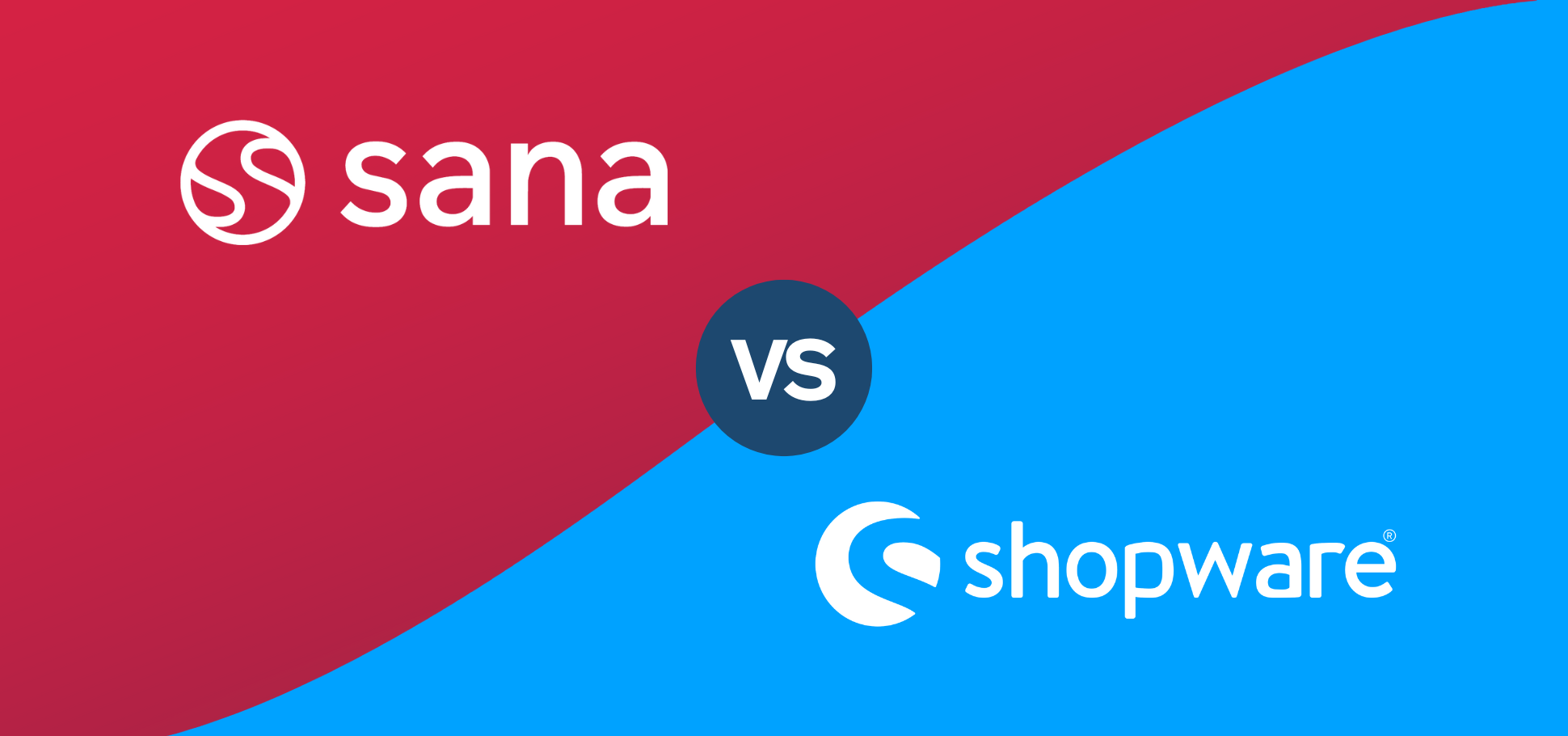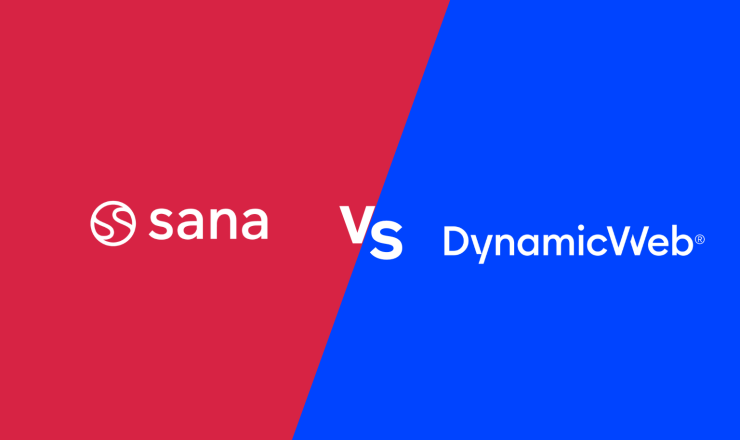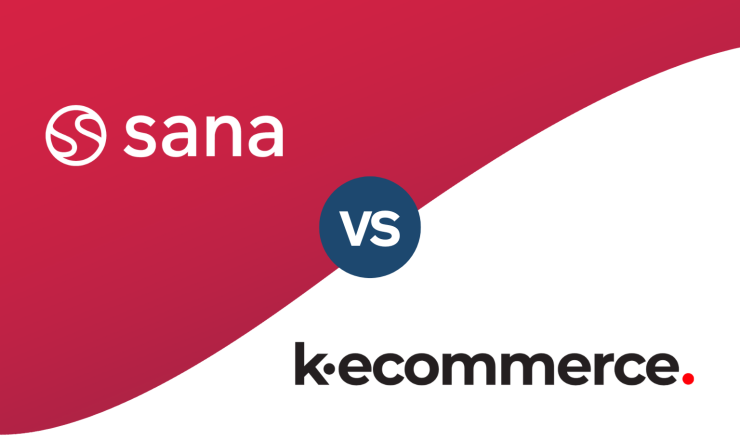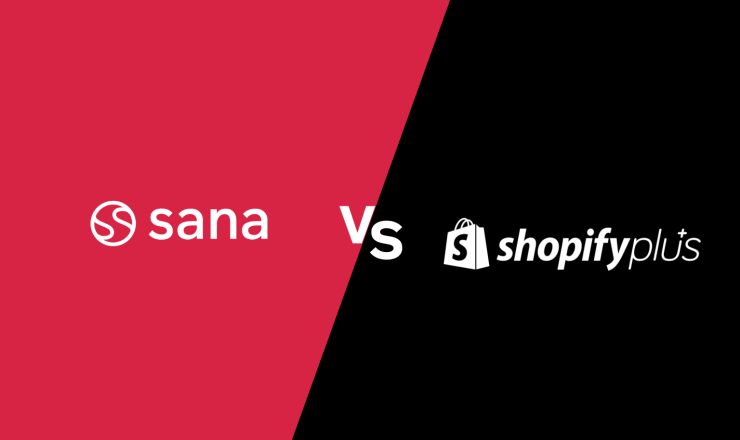

If you’re a B2B business looking to enhance your online presence, you’ve likely encountered both Shopware and Sana Commerce Cloud as potential e-commerce solutions. Shopware is a well-established platform with a strong presence in the B2C market, and it’s been expanding its B2B capabilities. Sana Commerce Cloud, on the other hand, is purpose-built for B2B, offering deep integration with your ERP system and features designed specifically for the complexities of B2B commerce.
When your smartphone begins to act up and starts glitching, or when you find out your phone will no longer support the latest IOS or AOS with the latest update – you know you need an upgrade. Your phone is most probably your lifeline, and whether you realize it or not, it can make or break your daily functions. Just like having an e-commerce platform that no longer supports the activities required by your business, it’s time to make the switch.
In this blog post, we’ll take an objective look at the strengths and weaknesses of both platforms, helping you make an informed decision about which one is the best fit for your unique business needs. We’ll explore key factors like flexibility, scalability, ERP integration, and overall cost of ownership.
Whether you’re a small business just starting out or a large enterprise with complex requirements, understanding the nuances of each platform is essential. Let’s dive in and discover how to evaluate Shopware vs Sana Cloud, and choose which can best empower your B2B success.
[/list]
I – B2B complexity: Shopware vs Sana Commerce
B2B e-commerce isn’t just a scaled-up version of B2C. It comes with its own set of intricacies: pricing structures, complex product catalogs, multi-layered approval workflows, and unique customer-specific requirements.
Juggling these complexities while trying to deliver a seamless online experience can be a challenge, even for the most seasoned businesses.
-
Shopware’s open-source challenge
While Shopware’s open-source approach seems flexible, B2B complexities often demand extensive customizations that go beyond its standard B2B features.
This can lead to reliance on external developers, increased costs, and operational headaches.
-
Sana Commerce Cloud’s solution
Sana Commerce Cloud simplifies B2B with out-of-the-box, comprehensive packages, eliminating the need for constant adjustments.
You get the features you need from the start, streamlining your operations and reducing total cost of ownership.
II – Flexibility and scalability: Choosing a platform that can keep up
In the fast-paced world of B2B, agility is key. Your business needs an e-commerce platform that can bend and flex as you grow, adapt to new markets, and embrace emerging technologies.
-
Shopware: A custom solution entering new markets
While Shopware does cater to the North American market, it is a new region for the company, and industry analysts have raised concerns about their ability to scale effectively for larger enterprises.
If seamless scalability is crucial for your business, it’s essential to carefully evaluate whether Shopware can meet your needs, both now and in the future.
Shopware’s B2B functionalities tend to require additional extensions to harness their full use. This might be fine if you would like a highly customized solution that works great as it is exactly: but it does mean you might have problems or have less flexibility to change quickly and meet dynamic market demands.
-
Sana Commerce Cloud: Functionality for B2B complexity
Sana Commerce’s out-of-box solution ensures the functionality you need, at scale. That means you can grow without fretting about a custom extension breaking, or worrying about what change will mean for your SaaS costs and budgets.
Nearly 20 years of global experience also means Sana Commerce is familiar and comfortable executing projects in any region in an efficient and specialized way.
- B2B-specific features: From smart catalog automations that ensure real-time updates on your inventory, to customer-specific pricing (only available on Shopware’s most advanced package), Sana Commerce Cloud is designed for complex B2B organizations.
- Bi-weekly updates: We recognize the need for a dynamic platform that grows with you and the ever-evolving world of B2B, which is why we have bi-weekly product updates that keep you at the forefront of innovation.
- Scale effortlessly: Handle increased traffic and transactions without breaking a sweat, even as you expand into new markets like North America

Learn more about the only ERP e-commerce solution that doesn’t require middleware
III – The difference between a platform and collaborator
Navigating multiple partners and stakeholders can add layers of complexity to any project.
With Shopware’s extensive partner network, you might find yourself coordinating with various agencies and third parties, potentially slowing down communication and decision-making.
-
Sana Commerce: Your direct line to e-commerce expertise
At Sana Commerce, we believe in keeping things simple and efficient. Our in-house development teams work closely with you, ensuring clear communication and agile project management.
You’ll have a direct line to the experts who built the platform, not just intermediaries.
Experience the benefits:
- Simplified project management: Our streamlined structure means fewer touchpoints and a more cohesive implementation experience.
- Faster response times: Get the answers you need quickly, without waiting for information to filter through multiple parties.
- Unified project vision: Work directly with our team to ensure your e-commerce project aligns perfectly with your business goals.
- Decades of B2B expertise: Benefit from our deep understanding of B2B commerce and our commitment to your success.
IV: Costs: Shopware vs. Sana Commerce
When comparing e-commerce platforms, it’s easy to get caught up in the initial price tag. But savvy businesses know that the true cost goes beyond the sticker price. It’s crucial to consider the total cost of ownership (TCO), which includes factors like implementation, customization, maintenance, and potential hidden fees.
-
Shopware: The open-source appeal
Shopware’s open-source nature might seem like a cost-effective option at first glance. However, the need for extensive customizations and third-party integrations to achieve B2B functionality can quickly drive up costs. Additionally, ongoing maintenance and support can require significant internal resources or the involvement of external agencies, further adding to the TCO.
-
Sana Commerce Cloud: Built-in value
Sana Commerce Cloud takes a different approach. Our platform is designed specifically for B2B, with a wide range of essential features included out of the box. This minimizes the need for costly customizations and reduces reliance on external developers. Plus, our seamless ERP integration eliminates the need for expensive middleware, further streamlining your costs.
Consider the long-term
While Shopware might seem attractive upfront, it’s important to factor in the potential long-term costs. With Sana Commerce Cloud, you get a transparent pricing structure, predictable maintenance fees, and a platform that’s built to scale with your business. This translates to a lower TCO and a greater return on your investment in the long run.
Conclusion
In the end, the ideal e-commerce platform for your B2B business depends on your unique needs. Shopware offers a solid foundation, particularly for those familiar with its B2C capabilities. But if you’re seeking a solution purpose-built for B2B complexities, with seamless integration and robust features, Sana Commerce Cloud might be the perfect fit.
We encourage you to weigh your options carefully and consider your long-term goals. And if you’re curious to learn more about how Sana Commerce Cloud can empower your B2B success, don’t hesitate to reach out. We’re always happy to chat and provide a personalized demo.

We understand B2B complexity.
Speak to one of our e-commerce experts to request a personalized demo.

Sana Commerce vs. Dynamicweb: Choosing the right e-commerce platform for your business

Sana vs. k-eCommerce: Two e-commerce software platforms’ 3 key differentiators

